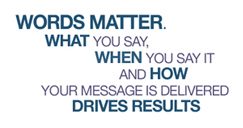Learn Russian in a Day
The Guardian February 8, 2014

Tackling Russian in a day looked tricky - but with the aid of memory palaces, anything is possible ...


CЛABA! Glory! With simple memory tricks, learning languages can be easy. Photograph: Buyenlarge
The formal "hello" in Russian is a necessary yet wholly unwelcoming word. It's packed with consonants that trip over each other, often within the same syllable. I try it over and over again, and only sound like I'm spitting. "Zdtras-vooy-tyeh." I am starting to hate it.
I'm off to see a memory expert to find out if I can learn a language in a day, and I seem to have picked a particularly tricky one. When I arrive at their office, Ed Cooke and Ben Whately, the men behind the learning site Memrise, say I should try Mandarin instead. Their technique applies to any language equally well - it's just that I am keen on Russian. I have wanted to give it a go since a night in the pub with my Russian girlfriend's family, who told me an excellent ancestral story about a kidnapped Persian, a Polish countess and hidden diamonds - but I wished I could have understood it better.
Mastering Russian in a day seems ideal - I would wake up with only a few basic words and go to bed with an untranslated copy of Eugene Onegin.
Ed, who has competed in the World Memory Championships and is a Grand Master of Memory, is quick to manage my expectations. Eight hours is not enough time to learn a vast and difficult language in its entirety, but with the help of Duncan Parrish, a Russian-speaking friend of Memrise, he says I'll be able to have a conversation with a stranger, and be understood.
One of the first hurdles in learning Russian is the fact that it uses the cyrillic alphabet, which is impenetrable to a newbie monoglot such as me. Using the concept of a "memory palace", I manage to learn all 33 letters in an hour. It is astounding. It's also quite tough to explain, because the technique requires leaps of the imagination that initially seem absurd. For example, I learn that P, B, H, X and C are "false friends" - you think you know them, but they sound completely different: P makes an R sound, while H sounds like N. To give them a visual reference, we go outside, illustrating that the letters are outsiders. Soon, I'm writing out what I think "hamburger" would look like in cyrillic, and I can't quite believe that my pen forms the shapes. (I went for ХАМБУРГЕР.)
Now that I can scribble down a food order, it's time to learn how to say it. The four of us sit around a table, take basic phrases such as "I'd like a cup of tea", and throw them around, working out how things might be phrased. This is followed up with Memrise lessons online, short quizzes that feel like games, combining recognition and repetition, with the use of what are called "mems" - again, visual prompts that remind you of the unfamiliar sounds. I'm starting to feel smug about my progress, when Duncan drops a bombshell: at 4pm, I'll have to Skype someone called Svetlana, who will not speak any English to me.
I am taken aback at how nerve-racking this is. I manage, with some stuttering, to say the following: hello, how are you, where are you from, where are you now, this is my first lesson in Russian, I'm not very good at it but it's OK, thanks, goodbye. I hang up, high-five Duncan and make a mental note to call the in-laws and find out more about the hidden diamonds as soon as I get home.
But I'm not allowed to rest on my laurels. Duncan sends me straight out to the Russian bazaar down the road to talk to a person in real life. A combination of confidence and human interaction makes it immeasurably easier this time. I find out that the woman who works in the shop is a Latvian who speaks Russian, and she finds out that I work for a newspaper. I'm shocked at where it's all coming from. It isn't exactly seamless - I rely on the easy "da" and "nyet" when my mind goes blank - but that gives me time to get back on track, and somehow, a conversation hesitantly rolls out. I buy a jar of borscht to take home in celebration.
It's been four weeks since my lesson and it is astonishing how much of it has stayed in my mind. What I did pick up gave me the confidence to do a full language course, because it made it seem possible to learn more. And perhaps one day, I'll finally wrap my tongue around "hello".
 +7 (495) 969-87-46
+7 (495) 969-87-46





















